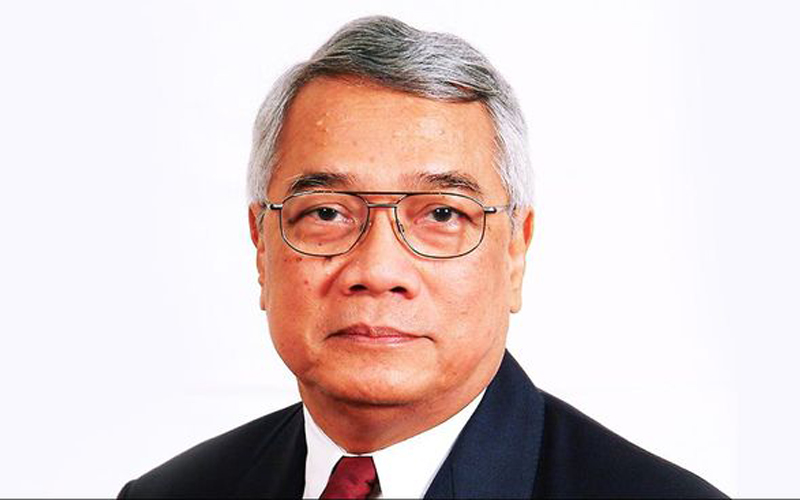The last act of President Putin?
by: Prof. J. Soedradjad Djiwandono, Ph.D., Emeritus Professor of Economics, FEB, UI, Jakarta and Adjunct Professor of International Economics, S. Rajaratnam School of International Studies (RSIS), Nanyang Technological University (NTU), Singapore.
Independent Observer – (15–21/4/2022) It was recently in the news that President Putin just made the decision to change the commander of Russian Army in Ukraine, appointing General Alexander Dvornikov. Many of us immediately remember this general as the Russian commander in the 2016 Syrian war, reputed to be involved in the death of some 440 civilians, including 90 children.
According to a recently-issued report, Russia admitted that they have suffered many losses of soldiers, dead in the invasion of Ukraine, and maybe because of this President Putin has now issued a new order for the Russian army to consolidate in eastern Ukraine, which means that those in the north and west of the country should move eastward to the Donbas area.
This move may come as a change of strategy, or it could simply be more realistic to achieve what is possible. After all, the Donbas area had been ruled by rebels agreeing to join Russia, just like the situation in Crimea.
In the meantime, Ukraine must be prepared for the worst. This may be the last act of President Putin, in the attempt to be able to claim victory and end the humiliation of having suffered the loss of so many soldiers. The new commander seemed to be trusted by President Putin to ensure his success from this invasion, a turn of events which President Putin needs so badly. General Alexander Dvornikov has been known as an expert in operating killing machines against enemies, irrespective of whether they are considered as military or civilian – just as what happened in Aleppo, Syria demonstrated.
Following these developments, I think my common sense tells me that this is the last act of President Putin. But if this would happen it means a new start for Ukraine will also come. War stops and all efforts must be focused on normalizing Ukraine, rehabilitating and rebuilding deva stated cities and communities. close to five million Ukraine refugees – old people, mothers, young children that fled the country – would thus be able to return to their respective towns in stages, in accordance with the progress of the rehabilitation and rebuilding of all the devastated buildings, houses and everything destroyed in the last continuous bombing more than a month long. Area-wise Russia takes some territory, enlarging Crimea with Donbas and nearby areas. For Ukraine this is still better than continuing a war without any certainty as to when it might end.
But all the rehabilitation and rebuilding is logically impossible to be financed by Ukraine itself, since the country is economically and financially bankrupt. There has been proposed something like a “Marshal Plan” to aid Ukraine, from the US and its allies, and any other country willing to provide grants and aid for rebuilding Ukraine and its system of government. Let us hope this is what will be going to happen.
Final notes.
At this juncture I think it is worthwhile to ponder some sensitive issues that seem to complicate our assessment of what has been developing. There seems to be some misunderstanding about President Putin, despite his tolerance of different religious practices, whether Moslems or Christians in Russia or countries neighboring Russia and former parts of the Soviet Union, like Kazakhstan, Azerbaijan, Turkmenistan, Kirgizstan and Bosnia Herzegovina. This is very true.
At the same tie, it is also true what was reported on the killing in Aleppo, Syria of 440 civilians that included 90 children in 2016. It was also true on the killing of civilians in Chechnya in 2000 – all Moslems. I think something similar occurred in Georgia. On other fronts, we should remember how autocratic President Xi Jinping has treated the people of Uighur, Xinjiang as well as the Myanmar junta, which continues the practice of the previous regime not to recognise the Rohingya as citizens of Myanmar, merely because they are Moslems and not Buddhists like them.
Finally, I must reiterate that I am writing this column based on my status as a normal human being with a belief that all of us are God’s creations, endowed with equal rights. I am not a political scientist, an international relations expert nor scholar of communism. I am just an academician with a conscience, full of empathy for the plight of those refugees or marginalised people, second-class citizen in their own respective country. I cannot do much about this, but somehow believe in the power of good write-ups, and have a little hope that this could spark a similar feeling, which could transform into action to help them out from their plight.
Source: Independent Observer. Edition: 15–21 April 2022. Rubric Opinion. Page 6.

